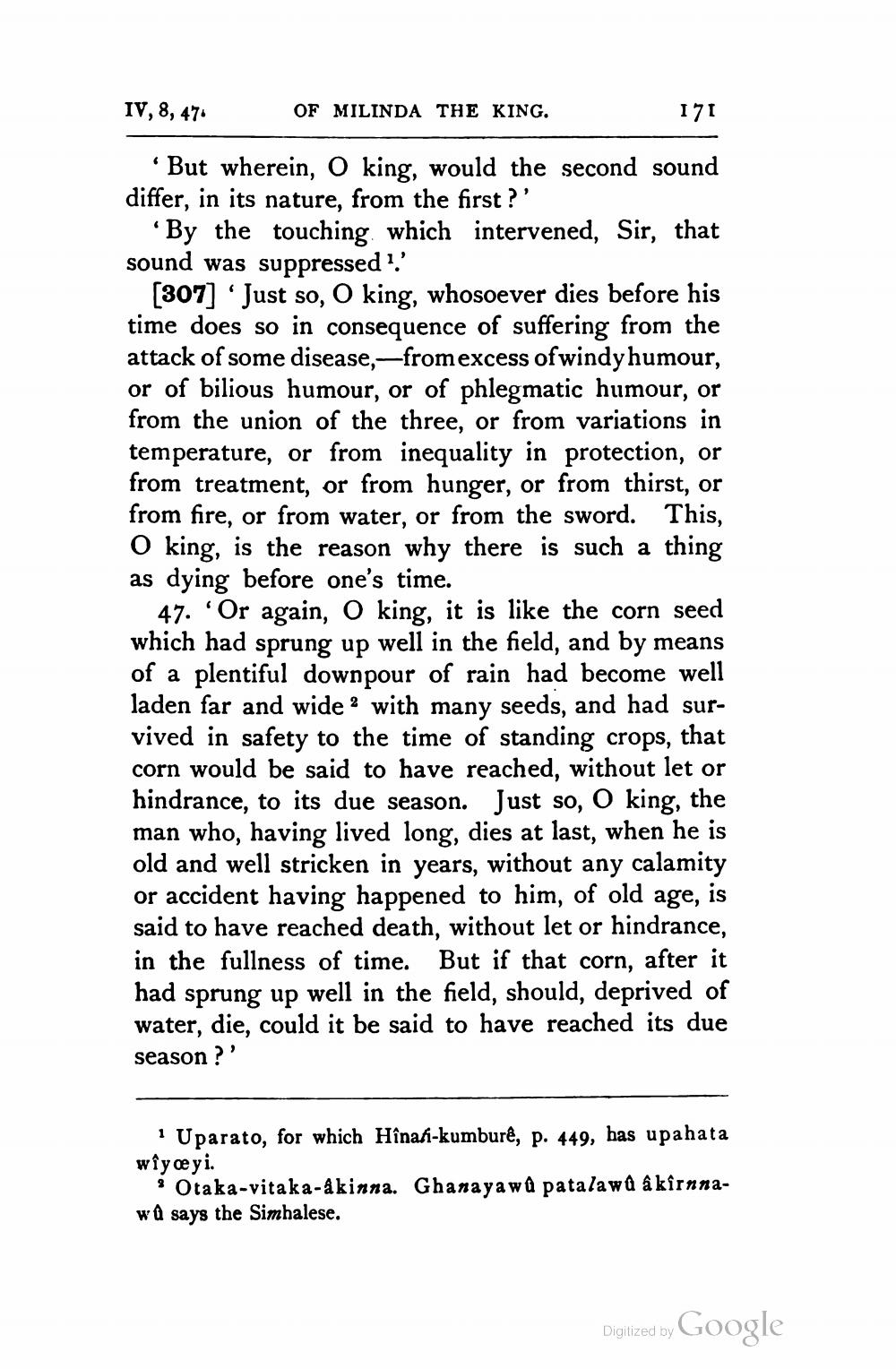________________
IV, 8, 47
OF MILINDA THE KING.
171
'But wherein, o king, would the second sound differ, in its nature, from the first?'
* By the touching which intervened, Sir, that sound was suppressed 1.'
[307] · Just so, O king, whosoever dies before his time does so in consequence of suffering from the attack of some disease,—from excess of windy humour, or of bilious humour, or of phlegmatic humour, or from the union of the three, or from variations in temperature, or from inequality in protection, or from treatment, or from hunger, or from thirst, or from fire, or from water, or from the sword. This, O king, is the reason why there is such a thing as dying before one's time.
47. 'Or again, O king, it is like the corn seed which had sprung up well in the field, and by means of a plentiful downpour of rain had become well laden far and wide ? with many seeds, and had survived in safety to the time of standing crops, that corn would be said to have reached, without let or hindrance, to its due season. Just so, O king, the man who, having lived long, dies at last, when he is old and well stricken in years, without any calamity or accident having happened to him, of old age, is said to have reached death, without let or hindrance, in the fullness of time. But if that corn, after it had sprung up well in the field, should, deprived of water, die, could it be said to have reached its due season?'
i Uparato, for which Hînati-kumburê, p. 449, has upahata wiyceyi.
Otaka-vitaka-Akinna. Ghanaya wa patalawa akirnnaw û says the Simhalese.
Digitized by Google




